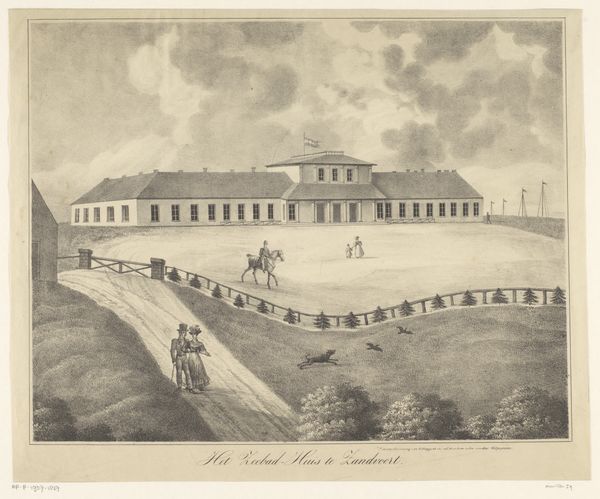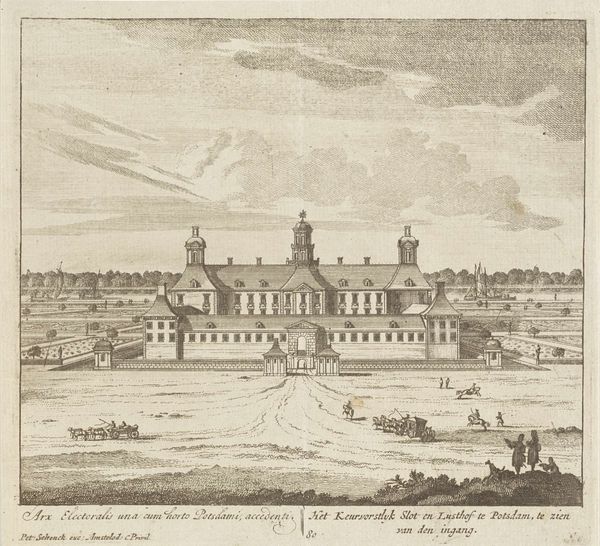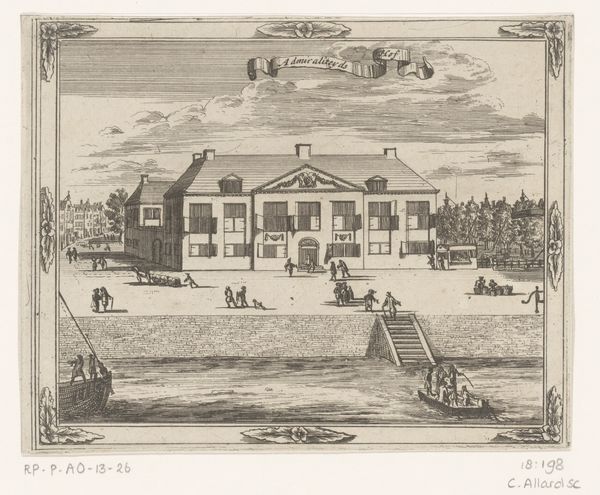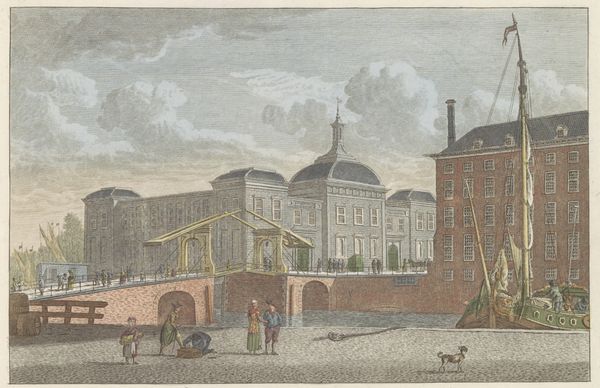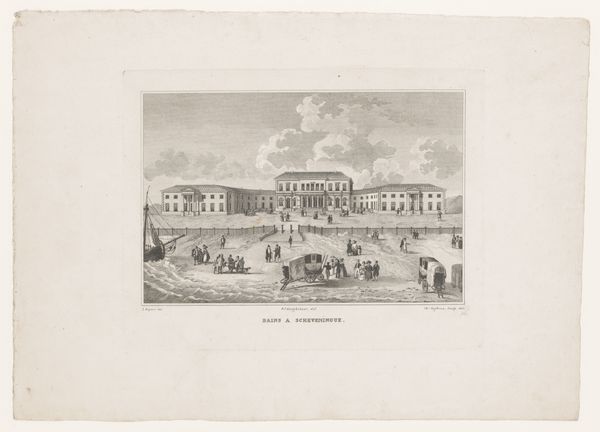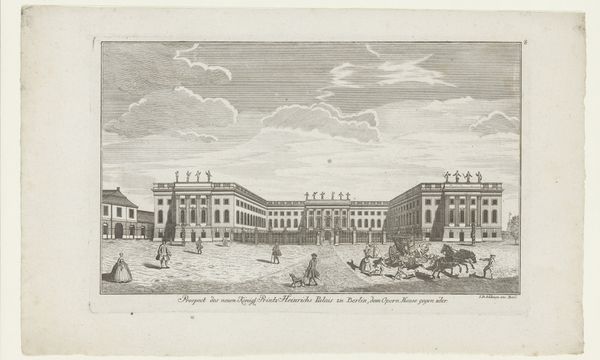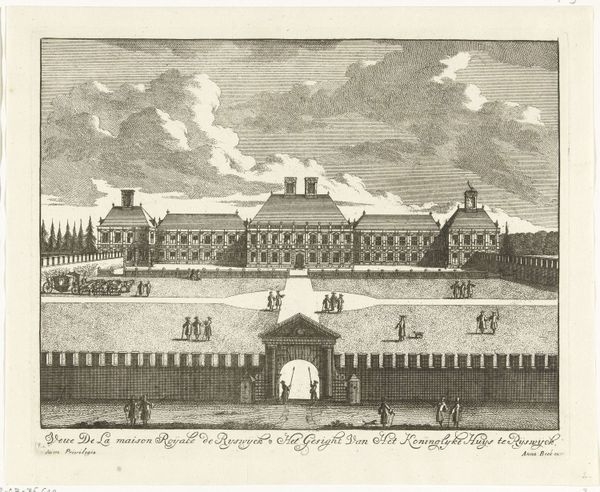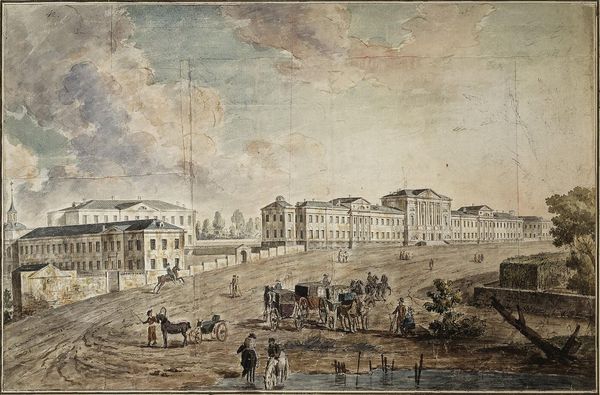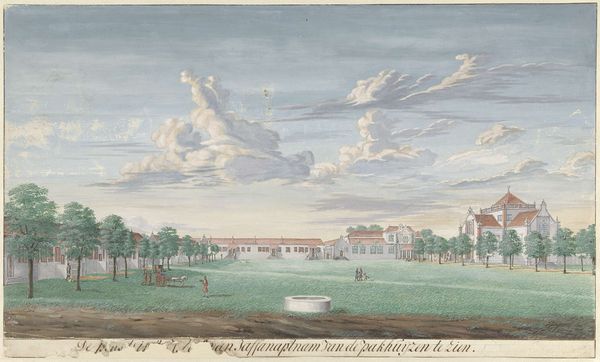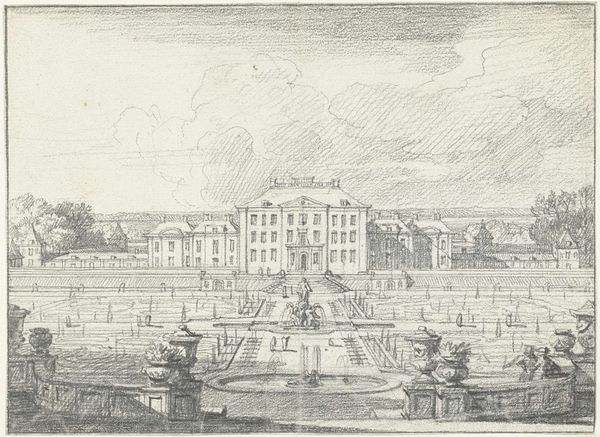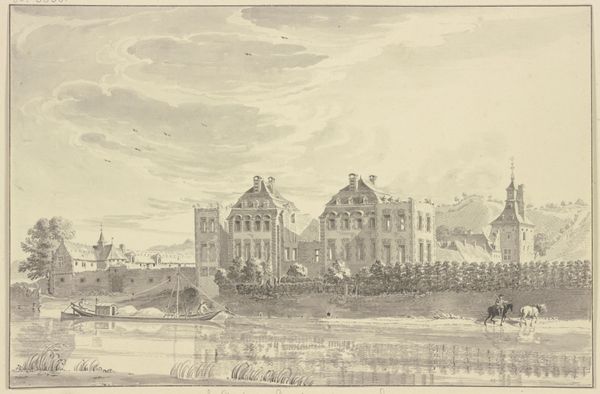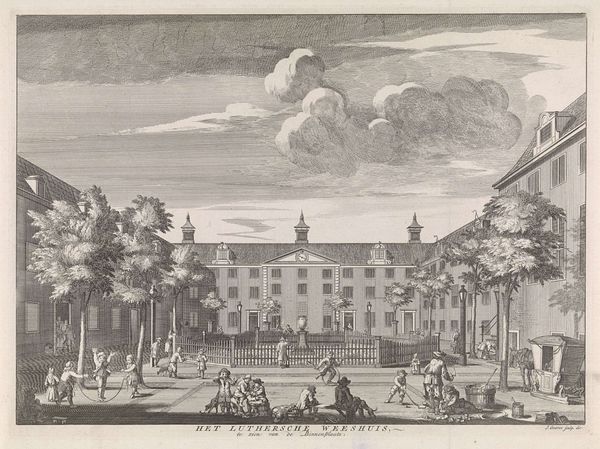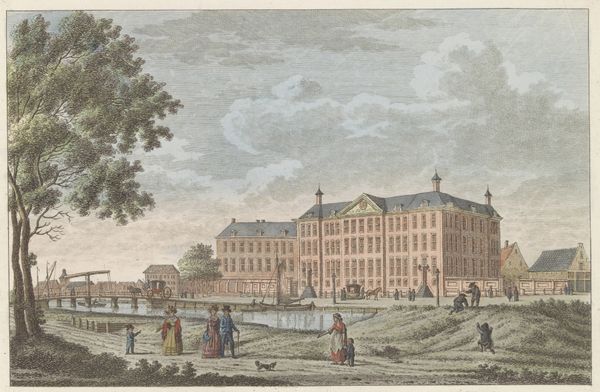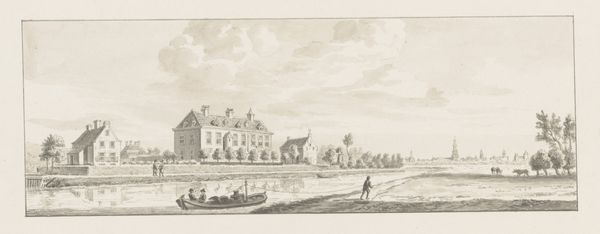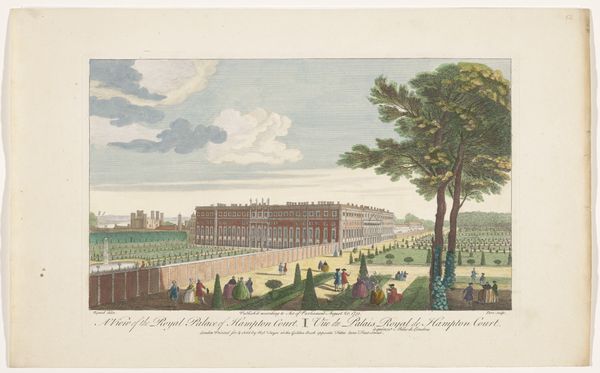
drawing, plein-air, paper, watercolor
#
drawing
#
dutch-golden-age
#
plein-air
#
landscape
#
paper
#
watercolor
#
coloured pencil
#
romanticism
#
cityscape
#
watercolour illustration
#
watercolor
Dimensions: height 301 mm, width 395 mm
Copyright: Rijks Museum: Open Domain
E. Huygens’ drawing depicts the Bad Hotel in Scheveningen with understated precision, placing emphasis on the building's imposing presence above a lively beach scene. The hotel itself is presented as a beacon of civilization. The building's architecture is reminiscent of classical temples, embodying ideals of order and refinement. Compare this with depictions of temples throughout history, from ancient Greece to the Renaissance. See how they served as symbols of cultural ambition and societal values. This architectural style, evoking a sense of permanence, contrasts with the dynamic, ever-changing nature of the sea. It's a juxtaposition that reveals a timeless aspiration to shape and control the environment, mirroring humanity's persistent quest for stability amidst life's inherent flux. Notice the human figures scattered along the shoreline; their activities suggest leisure and a connection with nature, yet they are dwarfed by the scale of the hotel, reinforcing its dominance. This image encapsulates a pivotal moment where built structures begin to assert control over natural landscapes, reflecting a deeper cultural shift towards urbanization.
Comments
No comments
Be the first to comment and join the conversation on the ultimate creative platform.
